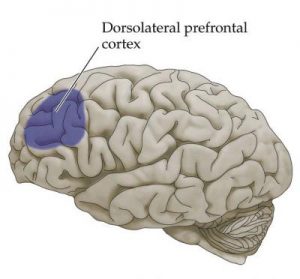 First impressions are extremely important in the dating world. When you first meet a person you size him up, make quick judgments and decide if this person is worth going on a second date with.
First impressions are extremely important in the dating world. When you first meet a person you size him up, make quick judgments and decide if this person is worth going on a second date with.
If you are not interested, you move on, meet someone else and repeat the same process. You trust your judgement and know what to look for in a potential partner. But have you ever wondered where in your mind you make these quick decisions? You may be surprised to find that you don’t know yourself as well as you think you do!
Early last week, the Journal of Neuroscience published a new study by the California Institute of Technology (Caltech) on what happens in the brain when we make rapid-judgment decisions about others.
As expected, the results of the study found that speed daters chose their partners based on a combination of two different factors: physical attractiveness and compatibility (how compatible a person is to your lifestyle, interests, etc).
However, the researchers also identified two parts of the brain that play a key role in making snap decisions about another person’s romantic potential.
“Psychologists have known for some time that people can often make very rapid judgments about others based on limited information, such as appearance,” says John O’Doherty, professor of psychology and one of the paper’s co-authors. “However, very little has been known about how this might work in real social interactions with real consequences—such as when making decisions about whether to date someone or not. And almost nothing is known about how this type of rapid judgment is made by the brain.”
The Study
Thirty-nine heterosexual male and female volunteers where shown pictures of potential dates while placed in a functional magnetic resonance imaging (fMRI) machine. They were given four seconds to rate each picture on a scale from 1 to 4 on attractiveness and likeability.
After going over 90 pictures of potential romantic partners, they were asked to rate them again outside of the fMRI machine on a scale from 1 to 9.
Speed Dating Event
In the second part of the study, volunteers where asked to participate in a speed-dating event, where they spent five minutes talking with potential partners and later listed those they were interested in meeting for a second date. If the feelings were mutual, they were both given the contact information of each other.
As expected, people who had the highest attractiveness ratings had the most dates.
Regions in the Brain
The study found that making rapid-judgment decisions about others triggered activity in a region of the brain called the dorsomedial prefrontal cortex (DMPFC) as shown in the picture below, located about one inch above your eyes.
This region of the brain has smaller areas within itself that have slightly different roles: the paracingulate cortex (PCC) and rostromedial prefrontal cortex (RPC).
When participants found a person attractive, they showed activation in the paracingulate cortex (PCC). This area has also shown to be active when a person is comparing options, and is thought to be important in overall decision making.
This phenomenon was seen consistently across all volunteers in the study.
Almost everyone, both men and women, rated physical attraction as the most important factor when judging a potential partner.
“But that’s not the only thing that’s happening,” says Jeff Cooper, a former postdoctoral scholar in O’Doherty’s lab and the first author of the study.
While a person’s physical attractiveness is an extremely important factor in choosing a romantic partner, likability by others is also important. But when participants were attracted to a person who was NOT as desirable to others, they showed more activity in the rostromedial prefrontal cortex (RPC), which sits in front of the paracingulate cortex (PCC).
Confused? Just imagine two red dots inside the shaded area of the picture above; the dot in the front would be the rostromedial cortex (finding someone attractive), and the one behind it would be the paracingulate cortex (deciding on someone that you like but is not favored by others).
“Our work shows for the first time that activity in two parts of the DMPFC may be very important for driving the snapshot judgments that we make all the time about other people,” says O’Doherty.
What happened after the speed dating event?
This study was primarily focused on examining the neural mechanisms behind rapid evaluations. The researchers have not followed up with all of the participants yet, but O’Doherty did say that although some the couples were still dating six weeks later, how these judgements relate to long-term relationships is yet to be determined.
One last thought
Remember when you were deciding whether or not that person was someone you wanted to go on a second date with? Now you know where that decision took place.
REFERENCES
Cooper, J.C., Dunne, S., Furey, T., O’Doherty, J.P., Dorsomedial Prefrontal Cortex Mediates Rapid Evaluations Predicting the Outcome of Romantic Interactions. 2012. Available at: http://www.jneurosci.org/content/32/45/15647.abstract
Woo, Marcus. Snap Judgement During Speed Dating. 2012. Available at: http://www.caltech.edu/content/snap-judgments-during-speed-dating













November 29, 2012
Excellent pieces. Keep writing such kind of info on your site.
Im really impressed by your site.
You’ve done an incredible job. I will certainly digg it and in my opinion recommend to my friends. I’m sure they will be benefit from
this site.